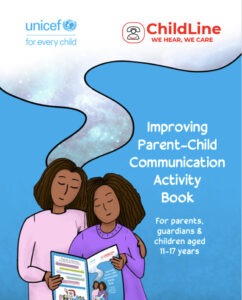Dealing with a toxic friendship
Is your friendship with someone starting to feel more and more like a burden? Does it cause you stress, anxiety, or senseless guilt? Do you frequently feel drained after spending time with someone who was supposed to be almost family to you?
You might be experiencing a toxic friendship!
Of course, people make mistakes all the time. We all sometimes argue with and emotionally hurt the people we love and care for the most. That does not make us bad people, it simply makes us flawed.
However, when a friend makes a habit of putting you down, making you doubt yourself and your interactions with them, or isolating you from others in your life, it just might be time for a change.
How do you know someone is being toxic?
- You no longer trust them, or that they have your best interest in mind. For example, they drag you into risky behaviour or dangerous situations.
- You don’t like who you become when you’re with them. For example, you gossip, engage in criminal behaviour, and bullying.
- You have strong suspicions (or confirmation from others) that your friend has been spreading rumours about you.
- They are extremely dependent on you or encourage you to be dependent on them.
- You feel like their bad moods or low self-esteem is somehow your fault, even when you did not do anything to cause them.
- Your other friends avoid or do not feel comfortable spending as much time with you anymore, especially if your friend is around.
- There is an unnecessary and unhealthy competition between you two, whether for grades, other friends’ attention, or even someone you like.
What if you are the toxic one?
When you feel hurt or neglected by someone close to you, it’s easy to focus on the hurt you feel and what they may have done to you. However, reflect on your behaviour and whether you have ever done something to upset them. Do you say or do things that may be hurtful to them, perhaps without realizing it? Could they have the impression that you‘re a toxic friend?
Get an outside perspective. Find out what your other friends have to say about you as a friend.
If you’re in a toxi friendship, should you “be a good friend” and hang in there?
It’s not a bad thing to want to give people a second chance. However, there should always be a line at which you must prioritize your mental health and well-being, even if it means ending the friendship. Try having a conversation first, letting them know how you feel and how you would like things to change. It’s possible that your friend didn’t mean to push you so far and is willing to mend your relationship.
If not…
Set boundaries within your relationship let the other person know that certain things may make you feel uncomfortable or hurt. Nothing is embarrassing about telling the people around what you are okay and not okay with.
Let your friend know that you need some space. Even if you intend to work on your relationship later, the negative feelings between you two may still be fresh.It is okay to take a break from each other and return with a clear head and calm heart to make a decision.
Be direct about how you feel and why you cannot remain friends. Do not be afraid to speak your mind. Leave no room for misunderstanding about the state of your relationship and do not let yourself be coerced if they get upset.
Just like the aftermath of a breakup with a boyfriend/girlfriend, think carefully before reconnecting in the future. Remember why you ended the friendship in the first place and how it affected your mental health. People can change for the better, but it is not your job to try to “fix” anyone.
Finally, your experiences with a toxic friend may make you wary of being close to others in the same way. However, you should not let a single bad experience taint your impression of other people you have not yet gotten to know. Be careful but try not to let yourself become afraid of being close to others.
[/et_pb_text][/et_pb_column][/et_pb_row][/et_pb_section]






